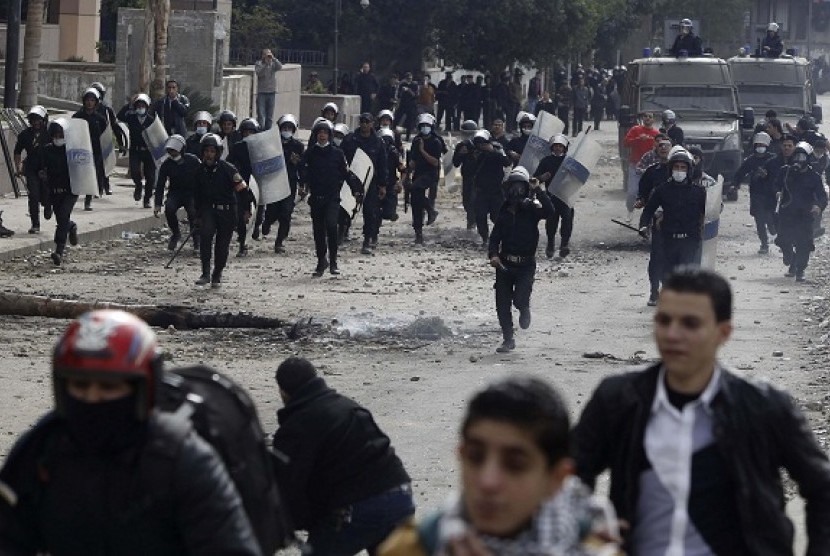REPUBLIKA.CO.ID, CAIRO - A man was shot dead on Monday in a fifth day of violence in Egypt that has killed 50 people and prompted the president to declare a state of emergency in an attempt to end a wave of unrest sweeping the Arab world's biggest nation.
Emergency rule announced by President Mohamed Mursi on Sunday covers the cities of Port Said, Ismailia and Suez. The army has already been deployed in two of those cities and cabinet approved a measure to let soldiers arrest civilians.
A cabinet source told Reuters any trials would be before civilian courts, but the step is likely to anger protesters who accuse Mursi of using high-handed security tactics of the kind they fought against to oust President Husni Mubarak.
Egypt's politics have become deeply polarised since those heady days two years ago, when protesters were making most of the running in the Arab Spring revolutions that sent shockwaves through the region and Islamists and liberals lined up together.
Although Islamists have won parliamentary and presidential elections, the disparate opposition has since united against Mursi. Late last year he moved to expand his powers and push a constitution with Islamist leanings through a referendum, punctuated by violent street protests.
Mursi's call for a national dialogue meeting on Monday to help end the crisis was spurned by his main opponents. They accuse Mursi of hijacking the revolution, listening only to his Islamist allies and breaking a promise to be a president for all Egyptians. Islamists say their rivals want to overthrow by undemocratic means Egypt's first freely elected leader.
Anti-Mursi protesters were out on the streets again in Cairo and elsewhere on Monday, the second anniversary of one of the bloodiest days in the revolution that erupted on January 25, 2011, and ended Mubarak's iron rule 18 days later.



